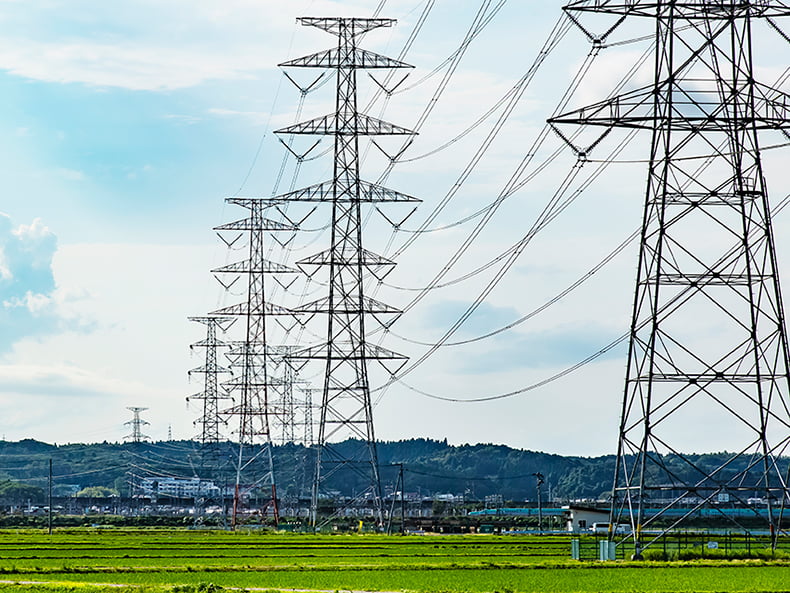- Contents
About the International Environmental Initiative “RE100”
The RE100 (1) is a global initiative that was formed in pursuit of a decarbonized society. To help the RE100 achieve its purpose, Fujitsu Group has converted all electricity at the Kawasaki Main Office, the group’s largest facility, to renewable energy. We spoke with Masayuki Hamakawa of the Sustainability Unit, Takayoshi Yamaguchi of the Kawasaki factory, and Yasushi Seino from the Global Supply Chain Unit about why Fujitsu joined the initiative and what has been achieved.
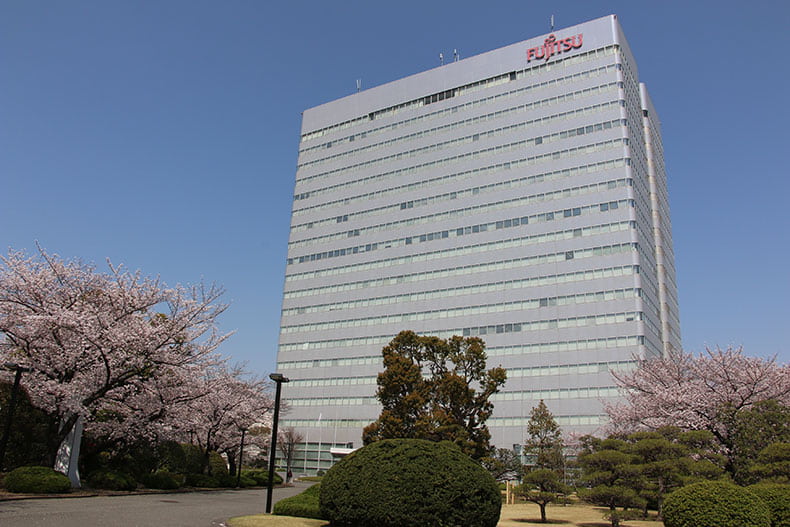
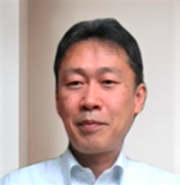 Sustainability Unit
Sustainability Unit Head of Environment Division
Masayuki Hamakawa
Hamakawa: We’ve been hearing “RE100” often lately. It’s short for “Renewable Energy 100%”, which is the global initiative for companies to shift all the electricity they use to run their operations into renewable energy. At this time, more than 300 companies all over the world, including more than 50 Japanese companies, have joined, and each have set their own targets. In Fujitsu’s case, starting in 2018, we committed to achieving 40% renewable energy by 2030 and 100% by 2050.
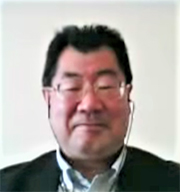 Deputy Head of Factory
Deputy Head of FactoryKawasaki Research & Manufacturing Facilities
& Director, General Affairs Department
Takayoshi Yamaguchi
Yamaguchi: One way we are trying to realize a sustainable society is by aiming to use 100% natural energy. If we didn’t try to do that, what would happen? If we continue to use existing forms of energy, fossil fuels will be exhausted someday, and we believe there will come a day when climate change, air pollution, and other issues will be restrict the continuation of society as we know it. For the future of children 30, 50 years down the line, we must tackle our SDGs (Sustainable Development Goals) and take action for the RE100 now.
Hamakawa: What would happen if we didn’t pursue our SDGs? In the most extreme case, we would not be able to maintain society and our world would be ended. Throughout the world, poverty would increase, governmental revenues would disappear, and conflict may erupt over food and water. Of course, since the foundation of our business is comprised of natural and social capital, those would incur damage and we would no longer be able to continue business. From that perspective, we must use business to combat these issues with a strong commitment to the SDGs and RE100 at the source of Fujitsu.
Fujitsu Aims to Be Japan’s Leader in the RE100

Regarding the incorporation of renewable energy thus far, compared to the abundant supply in Western countries, expanding renewable energy in Japan has become a topic of interest. Moreover, matters such as stable procurement and economic rationality are also at the center of discussion. With consideration to these issues, what was Fujitsu’s reason for throwing their efforts behind the realization of the RE100?
Hamakawa: In 2017, our Medium/Long-term Environmental Vision was released to reach CO2 zero emissions. One way of driving Fujitsu toward that reality was through joining the RE100. It is impossible for us to achieve zero emissions even if we stringently conserve energy but still consume some electricity. For that reason, it is vital that we take that leftover electricity to replace with renewable energy. It may be costly for the short term, but as we advance toward a decarbonized society, by answering the wishes of customers, we believe the service industry will yield increased profit and benefit us in the long term.
Yamaguchi: It’s true that from the view of economic rationality costs will increase in the interim, but we do not believe that’s a reason for hitting the brake on the RE100. Through tackling energy management more urgently than before with everyone in the supply chain, we want to reduce costs and find a long-term solution.
Hamakawa: Since the world is rapidly moving toward carbon neutrality, we would rather lead than resist this shift, but we are actually proud to have taken a position of leadership in Japan.
For instance, 100% renewable energy has become a prerequisite for data centers outside Japan, and clouds from businesses with those credentials have the support of the customers. Japan still hadn’t reached that level of awareness, but Fujitsu anticipated those needs and declared that we will have our cloud service FJcloud operational by 2022.
Even in Japan, there has been an increased demand from different industries for us to educate them about SDGs and climate change in particular. I feel that everyone’s awareness has changed compared to several years ago.
Now, since the world is waking up to the gravity of climate change and is starting to grapple with this issue, I believe we should be able to foster our knowhow by acting without delay and provide the renewable energy being demanded by our customer.
Yamaguchi: That’s right. Fujitsu Group will accumulate the necessary technology and experience by immediately aiming for RE100, and with the application of Fujitsu’s expertise in sensing technology and simulation, big data, AI, and also supercomputers, we believe we can contribute to the formation of a sustainable society. Our purpose is to make the world more sustainable by building trust in society through innovation. I think our purpose is connected to all of this, as well as mid-to-long term business, and I feel that connection will extend to various other elements.
Efforts Progressed Thanks to On-site Responsibility
Fujitsu started engaging with the RE100 from the Kawasaki Main Office. Why did you start there and what kind of difficulties were faced during the actual implementation?
Yamaguchi: We started with the Kawasaki Main Office because it is Fujitsu Group’s largest facility, the site of our origination, and our technology base. We were able to send a clear message that it was our flagship model for achieving the RE100.
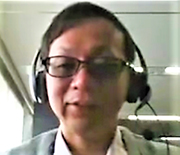 Global Supply Chain Unit
Global Supply Chain UnitInfrastructure and Services Purchasing Div.
Yasushi Seino
Seino: Regarding the SWITCH (2) activity that the entire company is working on, sustainability has become an important issue and we are implementing renewable energy as part of that.
We had a clear company policy to implement renewable energy, but we didn’t merely do it because upper management told us to. From the bottom up, there was a consensus by all at the facility that it was important for us to undertake this mission. It took some time, but as a result, everyone on site took this on as their own responsibility, and ideally conveyed a detailed course of action to upper management.
No one raised objections to the conversion to renewable energy, but since we truly needed adjustments on all sides and the cooperation of every site and affiliated companies, I take my hat off to everyone for their help.
We are most conscious of a stable supply. There are many choices even for renewable energy, but in addition to inexpensive procurement, we struggled with whether we could prove we had renewable energy and if we could create a stable, long-term supply of energy needed for the Kawasaki Main Office. For example, the quality of electricity for data centers will become incredibly important.
Hamakawa: People tend to think of renewable energy as solar panels installed on roofs, but in reality, renewable energy sourced electricity can also be bought from the electric company. Even the Kawasaki Main Office doesn’t generate its own, but actually procures 100% of it.
Japan was at a disadvantage in terms of supply amount and procurement costs, but in the past half a year or so, I feel that even the electric company has changed its way of thinking.
In the future, it may be necessary for Fujitsu Group and our cooperating partners to come together to produce renewable energy.
With Town in Mind, Continue Business in Region
Regarding the initiative to shift the Kawasaki Main Office to renewable energy, the mayor of Kawasaki also offered his comments.
Here we have what Mayor Norihiko Fukuda had to say about it.
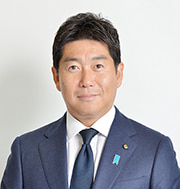
Comment from Norihiko Fukuda, Mayor of Kawasaki
I think the “100% renewable energy procurement” at Fujitsu’s Kawasaki Main Office as a precedent to lead the decarbonization effort is an incredibly wonderful initiative. While we expect that this circle of effort will spread to the entire region, our city is also stepping forward to make a sustainable future city a reality, and we hope to strengthen our cooperation even more.
What We Can Do to Move Toward a Sustainable Society
The work done at the Kawasaki Main Office is just the beginning, but what can be contributed to society from now on? We asked about future prospects.

Hamakawa: Because renewable energy is being further implemented not just in our group but also in society, we are concentrating our efforts to prevent wasting renewable energy. For example, by connecting each of the VPP (Virtual Power Plants) or facilities’ generators and batteries, we are working on a solution that operates like a large, virtual power plant. This way, we can anticipate renewable energy and supply amounts increase, which in turn will drive costs down, and bring consumers closer to using renewable energy.
Yamaguchi: The Kawasaki Main Office employs a great number of people who live nearby. Our long-standing cooperation with the city of Kawasaki and the region has been strong, and we are well-connected to the government and the citizens. We find significance in advancing the RE100 with those very people.
For example, Kawasaki City and the Kawasaki City Park and Greenery Association, the J.League’s KAWASAKI FRONTALE, and Fujitsu’s Kawasaki Main Office have combined to create the “Carbon Challenge Todoroki” as an activity for the region, and by being awarded the award of excellence and first prize of the Kawasaki City Smart Lifestyle Awards, we are highly regarded by the region and the government.
A sustainable society is not just part of business, but a topic that can be challenged in various ways if we think about it together with the community. Hopefully it can become useful in the region and society.
Seino: For consumers to be aware of a sustainable society, energy conservation is also important. Since renewable energy only exists because of energy conservation, we believe Fujitsu can fulfill the RE100 by using fewer plastic products that we have been working on, perform daily activities while reusing what we can, and connect it back to the industry that we’re included in. Day by day, we can do something more and more until we reach a sustainable society.
Hamakawa: Until now, inter-business proof-of-concept has been the main focus, but we think it would be great if we could accomplish a proof-of-concept together with the consumers. Despite Fujitsu Group being a large company, from the world’s point of view, we are still small. Still, it is important for our actions to inspire other companies to act, because if we increase our friends including businesses and consumers, behaviors will modify and common sense will change for the better. I hope everyone will join us to decarbonize society and tackle climate change.
- [1]RE100 (Renewable Energy 100):
An initiative run in partnership with CDP by The Climate Group, an international NGO. Made up of companies aiming to use 100% renewable energy. As of July 12, 2021, 57 Japanese companies were participating. - [2]The internal activity of driving optimization of entire group’s overhead costs (external spending) and improving utilization of the optimized savings and circulating it back toward a sustainable reality.
Related Articles
- [Press Release] Fujitsu Group’s Largest Facility to Source 100% of its Energy Needs from Renewables, Demonstrating Commitment to Achievement of RE100
- [Press Release] Fujitsu Demonstrates Commitment to Sustainability with Pledge to Operate FJcloud with 100% Renewable Energy in Japan by FY2022
- [Press Release] Fujitsu, AutoGrid to Boost Renewable Energy Use in Japan Towards Realization of Decarbonized Society with Virtual Power Plant Solution


